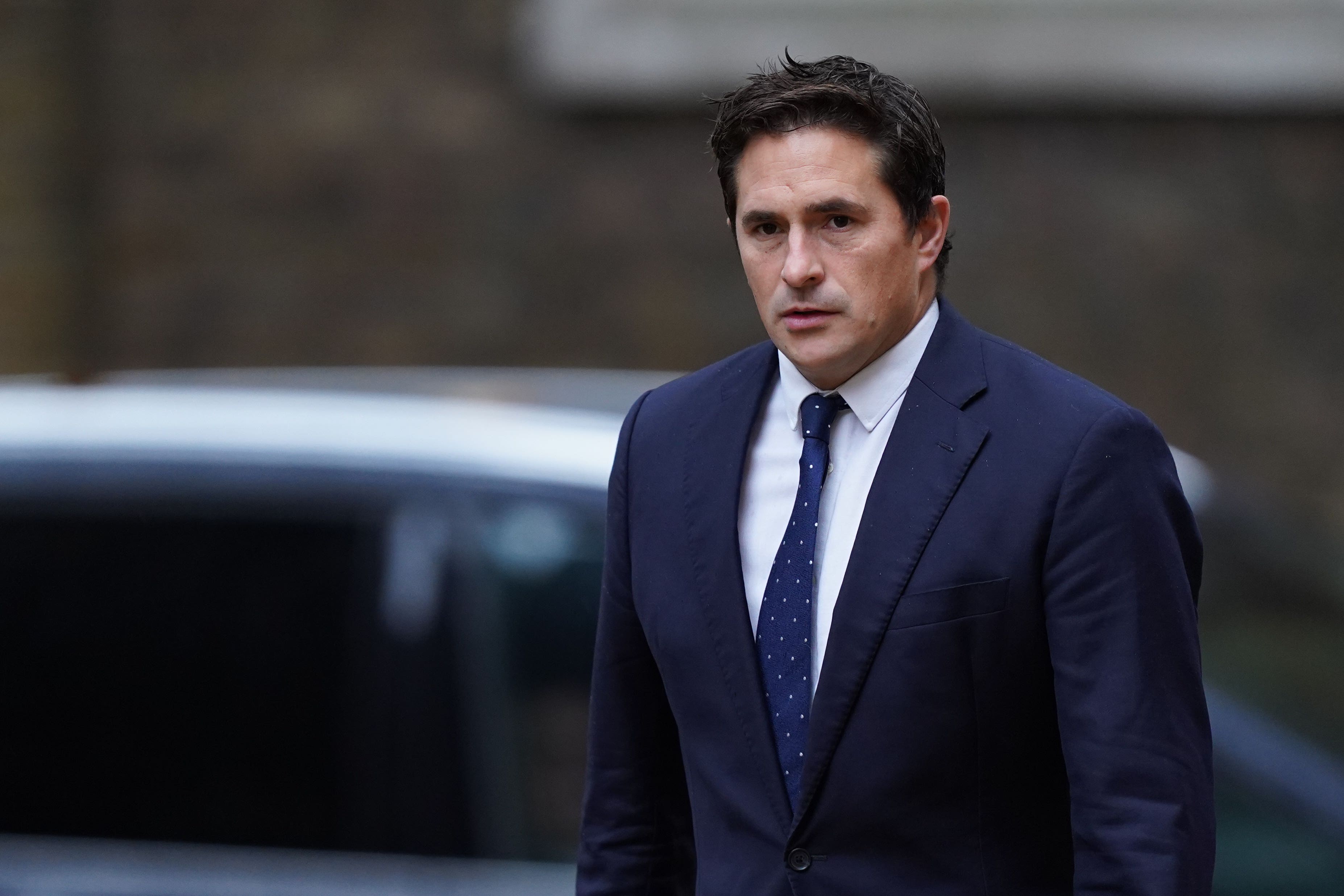Food bank use is a choice, suggests Veterans Minister Johnny Mercer
The Government minister said some people make ‘personal decisions’ around how they budget each month.

Your support helps us to tell the story
From reproductive rights to climate change to Big Tech, The Independent is on the ground when the story is developing. Whether it's investigating the financials of Elon Musk's pro-Trump PAC or producing our latest documentary, 'The A Word', which shines a light on the American women fighting for reproductive rights, we know how important it is to parse out the facts from the messaging.
At such a critical moment in US history, we need reporters on the ground. Your donation allows us to keep sending journalists to speak to both sides of the story.
The Independent is trusted by Americans across the entire political spectrum. And unlike many other quality news outlets, we choose not to lock Americans out of our reporting and analysis with paywalls. We believe quality journalism should be available to everyone, paid for by those who can afford it.
Your support makes all the difference.A Government minister has said it is “not correct” that people are forced to use food banks as he suggested relying on free handouts is a personal choice.
Veterans Minister Johnny Mercer appeared to suggest that some members of the armed forces are using food banks because of personal budgeting decisions as he defended military pay levels.
“These are personal decisions around how people are budgeting every month,” the former British Army captain told Sky News.
“I don’t want to see anyone using food banks, of course I don’t. But we’re in an extremely difficult time around cost of living.
“I’ll always advocate for service personnel to get paid more, I’d be mad not to. But it has to be within the constraints of a budget.”
Put to him that people do not choose to rely on food banks for their provisions, Mr Mercer replied: “Well, in my experience that is not correct.
“I think there are some dire cases that we need to do more to wrap our arms around and make sure that there is a safety net for people.
“I don’t think food bank use is an accurate portrayal of where levels of poverty, relative or absolute poverty, are in this country.”
All the money that people are receiving can be used for whatever they deem is most important to them, including food
Food banks are often run by charities and community groups, giving free packages of donated goods to those who cannot afford shop prices.
Those attending food banks tend to be referred by a service or specialist, such as a doctor, health visitor, social workers or Citizens Advice.
Meanwhile, Rishi Sunak said people can spend Government payments designed to help with the cost-of-living crisis on food when challenged over food insecurity.
In a heated exchange during his appearance before the Commons Liaison Committee, Catherine McKinnell, the Labour MP who chairs the Petitions Committee, pointed to figures suggesting one in seven people are cutting back or going without food because of a lack of money.
The Prime Minister noted the support people are receiving with their energy bills and the rise in the national living wage, adding that the most vulnerable households “will receive direct cost-of-living support through the welfare system”.
He continued: “All the money that people are receiving can be used for whatever they deem is most important to them, including food. The cost-of-living payments that are going to people can be spent on food.”
Plymouth Moor View MP Mr Mercer later commented on Twitter after facing social media criticism for his remarks.
“Enjoying the collective bed-wetting on this,” he posted.
“Military personnel should not be using food banks – period. Disagree if you like, but that is true.
“If you are serving personnel and you are using a food bank because you are ‘starving’ please do call me and I will come and see you.”
The Tory frontbencher was conducting the Tuesday morning round of broadcast interviews as part of an announcement around a dedicated helpline for homeless veterans.
Ex-servicemen and women can be referred to a network of support, including housing providers, charities and local authorities, by calling the Government-funded hotline.
The £500,000 helpline – open to people in England, Scotland and Wales – is part of a two-year £8.55 million programme working towards the Government’s pledge to end veteran rough sleeping.
The aim under the Veterans’ Strategy Action Plan 2022-24 was to achieve that within the current Parliament, but the Government said that with the funding the target can be achieved ahead of schedule.
Mr Mercer told Sky News: “There is no need for a veteran to be sleeping rough and I don’t want to see anyone sleeping rough by the end of this year.”
The latest Combined Homelessness and Information Network (Chain) report published last week stated that 5% of people seen rough sleeping in 2022/23 in London had served in the armed forces at some point in their lives.
Some 2% (119 people) of those seen rough sleeping in the year from April 2022 to March 2023 were UK nationals who have served in the armed forces, the report stated.
Guidance has also been published on the Government website setting out the housing options and support available to veterans, service leavers and their families in England, including routes into both veteran-specific and civilian housing.
The Government said the £8.55 million is separate from the £20 million Veteran Capital Housing Fund announced in the Spring Budget.
Veterans who are homeless or at risk of homelessness can contact the helpline on 0800 952 0774 or visit riv.org.uk/opfortitude.
A spokesman said work is in progress to identify how the service can be applied to Northern Ireland.